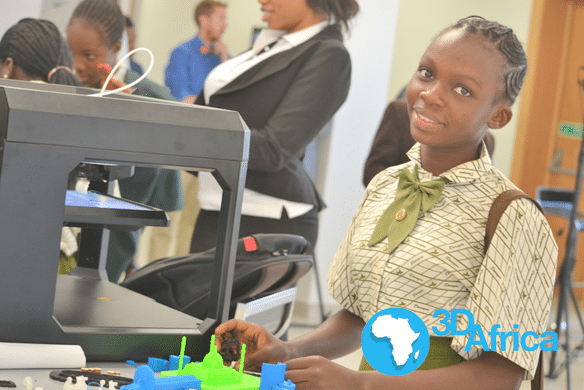Youth for Technology is taking a different approach to get girls in Africa interested in STEM subjects. While many programs and initiatives focus on coding or Web design, the 3D Africa program is making the most of 3-D printing technology to show the young girls just how fun STEM can be.
There has been an ongoing mission to get more Black girls interested in STEM careers, and that mission is especially dire in Africa.
African leaders and entrepreneurs believe investing in such technologies like 3-D printing could boost the continent’s economy.
Njideka Harry, the president and CEO of Youth for Technology, told TechCruch that 3-D printing “potentially could mitigate the unemployment situation in Africa by bridging the gap between education and employment.”
Harry said that 3-D printing alone is expected to generate roughly $550 billion a year worldwide by 2025.
That type of economic impact could cause major change across the continent but only if the next generation of innovators takes advantage of such opportunities.
Youth for Technology is vowing to make sure young African women are ready to compete in STEM careers and thrive in the 3-D printing industry.
It has already received a grant from Women Enhancing Technology (WeTech) to help fund the 3-D printing program and also launched an Indiegogo campaign to get more financial backing.
The program’s organizers believe 3-D printing is a great approach to getting girls interested in tech because the items they create will always serve was a reminder of the endless possibilities of science, technology, engineering and math.
The girls also will have to use all those skills in order to create their desired items with the printer.
Harry hopes it will encourage the young women to blaze their own trails in an industry that is currently dominated by men.
“There are cultural biases that hold that science is the domain of males and that it is not important for girls’ future lives and that girls are not as capable as boys when it comes to science learning,” Harry said.
Harry is hoping to boost young women’s confidence and inspire them to take more STEM subjects while they are still in school.
3D Africa will launch first in Nigeria, and Harry hopes to expand the program to other African countries after the first year.

